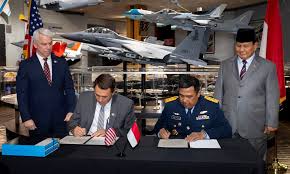- Homepage
- Innovation
- Understanding the Dynamics of Defense Budget Allocation
Understanding the Dynamics of Defense Budget Allocation
Table of Contents
ToggleThe defense budget is a critical component of a nation’s overall fiscal strategy. It reflects the priorities, threats, and ambitions of a country in the realm of national security. Governments allocate a significant portion of their budget to defense to ensure the safety and sovereignty of their nation, but the debate surrounding how much should be spent and how it is utilized continues to be a complex and contentious issue.
The Purpose of Defense Spending

Defense spending encompasses all financial resources dedicated to maintaining and improving a nation’s military capabilities. This includes funding for personnel salaries, equipment procurement, research and development, infrastructure, and operational costs.
The primary purpose of a defense budget is to safeguard a nation from external threats, maintain peace and stability, and support diplomatic strategies through a display of strength. In addition, defense budgets often fund missions related to disaster relief, peacekeeping operations, and counter-terrorism efforts.
Factors Influencing Defense Budget Decisions
A variety of factors influence the size and composition of a defense budget:
- Geopolitical Tensions
Countries situated in volatile regions often allocate larger portions of their budgets to defense to address immediate and potential threats. - Economic Capabilities
The economic strength of a nation significantly impacts its defense budget. Wealthier nations are able to allocate more resources, whereas smaller economies may prioritize other sectors like education and healthcare. - Technological Advancements
With rapid technological innovation, nations face the challenge of keeping their military capabilities current. Investments in artificial intelligence, cyber warfare, and advanced weaponry are increasingly vital. - Global Commitments
Nations involved in international alliances such as NATO or regional security pacts often adjust their defense spending to meet collective obligations.
Challenges in Defense Budget Allocation
Allocating a defense budget involves balancing national security needs with other critical priorities. Some of the major challenges include:
- Resource Allocation Trade-offs
Spending on defense often competes with funding for education, healthcare, and infrastructure. Governments must find an equilibrium that addresses both security and societal welfare. - Transparency and Accountability
Ensuring that funds are spent efficiently is a recurring challenge. Mismanagement or corruption in defense procurement can lead to inefficiencies and reduced operational capabilities. - Technological Race
Keeping up with technological advancements requires significant investment, and nations risk falling behind if they fail to allocate adequate resources.
Current Trends in Global Defense Spending

The global defense budget has been on an upward trajectory in recent years. According to recent analyses, the rise is driven by increasing geopolitical tensions and technological developments. Key trends include:
- Rise in Cybersecurity Investments
With the growing threat of cyberattacks, nations are directing more resources toward building robust cybersecurity defenses. - Focus on Modernization
Many countries are transitioning from traditional weaponry to modern systems such as drones, hypersonic missiles, and space defense technology. - Regional Spending Variations
Regions like Asia and the Middle East have seen notable increases in defense spending, reflecting heightened regional disputes and power competition.
The Impact of Defense Budgets on Economies
Defense spending has both direct and indirect impacts on national economies:
- Economic Growth Stimulus
Investments in defense industries create jobs and stimulate technological innovation, which can benefit civilian industries as well. - Budget Deficits
Excessive defense spending can lead to budgetary imbalances, especially in nations with limited economic resources. - International Trade Relations
Countries exporting defense technology often strengthen their economic ties with importers, influencing global trade dynamics.
The Debate Over Optimal Defense Spending
The question of how much a nation should spend on defense is a divisive issue. Advocates for increased spending argue that robust military capabilities are essential for maintaining sovereignty and deterring aggression. Critics, however, caution against overspending at the expense of other crucial sectors.
Examples of National Defense Budgets

Different nations adopt unique approaches to defense indrabet spending based on their priorities and circumstances:
- The United States
The U.S. consistently allocates the largest defense budget globally. Its focus is on maintaining global military dominance, supporting international allies, and developing advanced technologies. - China
China’s rapidly growing defense budget reflects its ambition to modernize its military and assert its influence in Asia and beyond. - Smaller Nations
Countries like Singapore or Israel, despite their smaller size, dedicate substantial portions of their GDP to defense due to perceived threats and strategic necessity.
Addressing Criticism of Defense Budgets
Defense budgets often face scrutiny from various quarters. Critics highlight issues such as excessive expenditure, lack of transparency, and ethical concerns related to arms proliferation. To address these criticisms, governments can adopt strategies such as:
- Enhanced Oversight
Implementing stringent monitoring mechanisms ensures that defense funds are utilized effectively. - International Collaboration
Participating in multilateral defense agreements can reduce the need for individual nations to allocate excessive funds. - Public Engagement
Transparent communication about the necessity and impact of defense spending helps build public trust.
The Future of Defense Budgets
The future of defense budgets will likely be shaped by emerging challenges and priorities. Climate change, cyber warfare, and the militarization of space are expected to influence budgetary allocations. Additionally, nations may need to strike a balance between traditional military investments and non-traditional security threats, such as pandemics and economic instability.
Conclusion
Defense budgets are an essential component of national security, reflecting the priorities and strategies of a country. While the need for robust military spending remains unquestioned, governments must strive to ensure transparency, accountability, and balance in their allocations. As global challenges evolve, so too must the strategies for defense spending, adapting to new threats while maintaining a commitment to economic and social development.
Read More Article About: Sate Taichan: Hidangan Kekinian yang Pedas dan Gurih










